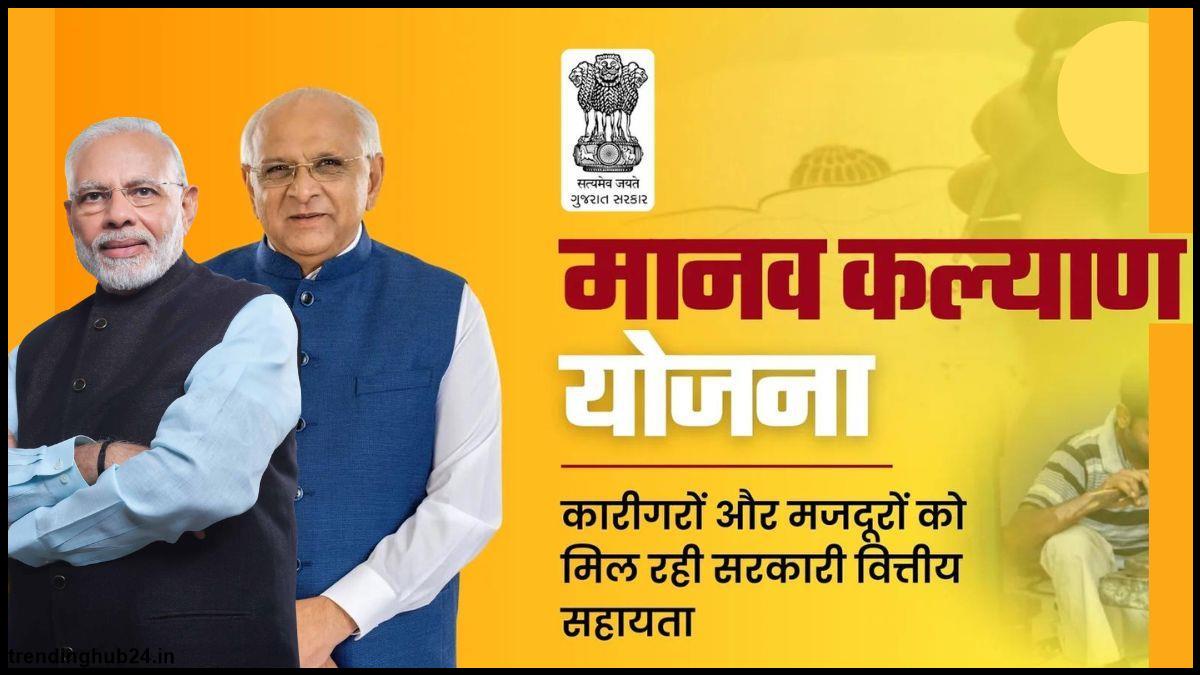🚀 Become a Verified Author on Trending Hub24
✍️ Author Account Available @ $60 / Month | +91 7355993756
Impact And Benefits Of The Manav Kalyan Yojana

Manav Kalyan Yojana helps the Gujarat people to start their own businesses by providing funds.
Table of Contents
Know the Impact of Implementing Manav Kalyan Yojana
Manav Kalyan Yojana is an important social welfare program that helps the economically backward, particularly those living in rural areas. The program assists people living in rural areas to start small companies or improve their current means of subsistence by offering necessary support, such as cash aid, tools, and equipment.
In rural areas, this program is essential for promoting economic empowerment and self-sufficiency. Its primary target groups are Scheduled Castes, Scheduled Tribes, and other backward classes. After the implementation of the Manav Kalyan Yojana, there is a lot of good impacts on rural development. This post explains about the impact of the Manav Kalyan Yojana on rural development:
Manav Kalyan Yojana
Manav Kalyan Yojana is launched by the Gujarati government with the goal of helping the poor people. The advanced version of this concept was announced in 2022. In partnership with the Ministry of Tribal Affairs, the government mostly focused on helping the economically disadvantaged caste communities. Increasing their pay and allowing them to work for themselves are also important.
Small company entrepreneurs and artisans who work on shoestring frequently find themselves needing help to afford the tools and equipment they require to make progress. More than only low-interest loans are provided under this Yojana. Rather, providing them with new tools and equipment will open the door for their progress.
Gujarati citizens can apply online while at home to take advantage of this scheme. This program is widely beneficial and is managed by the government.
The primary goal of Manav Kalyan Yojana is to promote social and economic development in addition to the economic advancement of underprivileged groups. This program increases the ability of poor people to generate income, assisting them in reaching their objective of becoming independent.
Advantages of the Manav Kalyan Yojana
- The Ekutir Manav Kalyan Yojana provides benefits to artisans, workers, small sellers, and other members of the backward caste who earn up to ₹12,000 in rural areas and up to ₹15,000 in urban areas. The government will provide them with funding assistance
- The low-income citizens of the state will also have access to additional tools and equipment
- Assistance from the government will be given to workers in 28 different professions
- To enhance their wages, the state government will offer every one of these employees every assistance possible.
- To take advantage of this service, Gujarati citizens can apply online while relaxing at home.
- This scheme is similar to the government-run Manav Garima Yojana, which helps many people.
The Impact of Manav Kalyan Yojana on Rural Development
The Manav Kalyan Yojana has made a significant contribution to rural development, particularly in the following ways:
Income Generation
The e-kutir manav kalyan yojana gives rural households more income generation, which is one of its most noticeable effects immediately. The program helps people launch or grow their enterprises by providing resources and capital, which immediately raises their income levels. In many rural areas, this has helped to reduce poverty because there is less dependence on seasonal workers or low-wage occupations.
Encouragement of Independence and Business Ownership
The Yojana has been crucial in helping rural communities develop a sense of independence. By encouraging people to pursue independent business, the program has increased the economic independence and empowerment of the rural population. Small-scale industries have grown as a result of this entrepreneurial spirit, boosting the local economy in rural areas.
Skill Development and Capacity Building
The Yojana's training and skill development initiatives have greatly enhanced the capacities of people living in rural areas. A large number of recipients, especially those from underprivileged areas, do not have access to formal education or career training. More people can run their enterprises more efficiently because of the Yojana's training activities. Long-term advantages result from capacity development because it gives recipients the skills and knowledge to maintain and expand their enterprises over time.
Inclusive Growth
The benefits of rural development are distributed more fairly due to the scheme's emphasis on SC, ST, and OBC populations. These populations have historically been shut out of numerous mainstream economic opportunities. The Manav Kalyan Yojana has aided in bridging the gap between underprivileged communities and the wider economy by targeting them for aid. This has helped to lessen socioeconomic disparity in rural areas and promote more inclusive growth.
Parting Words
For rural development, the scheme Manav Kalyan Yojana is implemented. This scheme helps the Gujarat people to start their own businesses by providing funds. Implementing this yojana aims to improve rural populations with sustained support and focused initiatives, supporting the larger objective of a more prosperous and equitable India.

